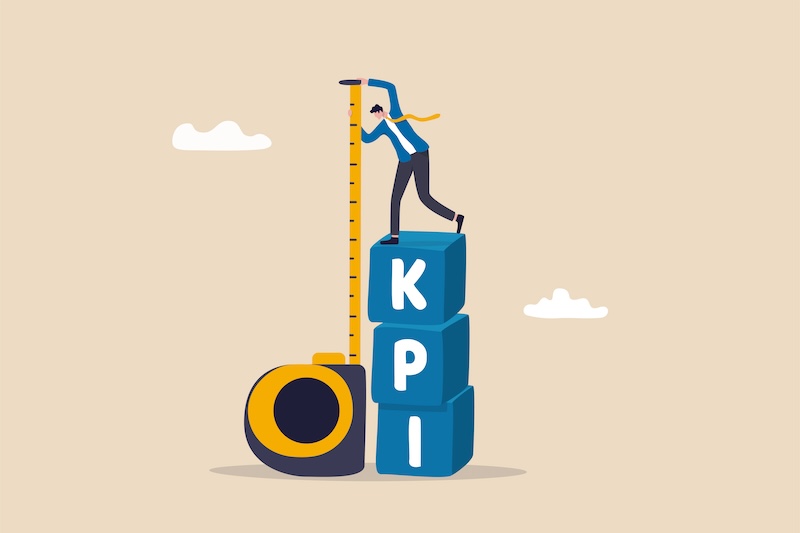In the bustling metropolis of Singapore, where innovation meets tradition and business thrives amidst a competitive landscape, measuring success isn’t just about profits and losses. It’s about navigating a complex ecosystem where economic stability, innovation, and social responsibility intertwine. As businesses incorporated in Singapore strive to make their mark in this dynamic environment, understanding how to gauge success becomes crucial. In this blog, we delve into the various metrics and parameters that define business success in Singapore.
Measuring Business Success in Singapore
Economic Performance Metrics
1. Gross Domestic Product (GDP):
GDP serves as a primary indicator of a country’s economic health. For businesses in Singapore, monitoring GDP growth rates provides insight into the overall economic climate, influencing consumer spending patterns, investment opportunities, and market expansion strategies.
2. Productivity Levels:
Singapore places great emphasis on productivity enhancement to sustain economic growth. Businesses track metrics like output per hour worked, revenue per employee, and total factor productivity to gauge operational efficiency and competitiveness.
3. Innovation and Technology Adoption:
Innovation lies at the heart of Singapore’s economic strategy. Businesses that invest in research and development, adopt cutting-edge technologies, and collaborate with research institutions contribute to Singapore’s status as a global innovation hub.
Financial Performance Indicators
1. Revenue Growth:
In Singapore’s dynamic business environment, revenue growth serves as a crucial indicator of competitiveness and market viability. Amidst rapid technological advancements and globalization, businesses must continuously innovate and adapt to evolving consumer preferences and market trends to sustain revenue growth. Strategies such as market expansion, product diversification, and strategic partnerships play key roles in driving revenue growth and maintaining market relevance.
2. Profitability:
Profitability metrics, such as profit margins and return on investment (ROI), play a pivotal role in determining a company’s financial health and ultimately its business success. This is especially critical for Singaporean businesses operating in a highly competitive market, where maintaining healthy profit margins is paramount for long-term sustainability and competitiveness. Through diligent cost management, strategic pricing strategies, and operational enhancements, businesses can optimize profitability, ensuring sustainable returns for shareholders and stakeholders. By prioritizing profitability alongside other key performance indicators, Singaporean businesses can position themselves for enduring success in the dynamic business landscape of the Lion City.
3. Cash Flow Management:
Effective cash flow management is imperative for business survival, especially in Singapore’s high-cost environment characterized by tight liquidity conditions. Businesses closely monitor cash flow metrics such as the cash conversion cycle and working capital turnover ratio to optimize liquidity, minimize financing costs, and mitigate financial risks. By proactively managing cash flows, businesses can ensure smooth operations, seize growth opportunities, and navigate economic uncertainties with resilience and agility.
Social and Environmental Responsibility
1. Corporate Social Responsibility (CSR):
In Singapore’s evolving business landscape, corporate social responsibility (CSR) has become a significant factor in measuring business success. Beyond financial metrics, businesses are increasingly expected to demonstrate their commitment to social and environmental causes. This involves actively engaging in CSR initiatives that contribute to the well-being of society and the environment. Such initiatives may include philanthropy, community development projects, educational programs, and support for vulnerable groups. By integrating CSR into their business strategies, companies not only fulfil their ethical obligations but also enhance their reputation, attract socially conscious customers, and foster employee pride and engagement.
2. Environmental Sustainability:
Singapore’s emphasis on sustainability aligns with global efforts to address climate change and environmental degradation. Businesses are evaluated based on their environmental practices, including their impact on natural resources, energy consumption, carbon emissions, and waste management. Embracing environmental sustainability involves adopting eco-friendly technologies, implementing energy-efficient practices, reducing carbon footprint, and minimizing waste generation. Additionally, businesses are encouraged to obtain sustainability certifications and adhere to established standards to demonstrate their commitment to environmental stewardship. By prioritizing environmental sustainability, businesses not only contribute to the preservation of the planet but also mitigate operational risks, reduce costs, and enhance their competitiveness in the market.
Market Reputation and Customer Satisfaction
1. Brand Equity:
Building a strong brand presence and reputation enhances customer trust and loyalty. Businesses in Singapore invest in brand equity metrics such as:
- Brand Awareness: Measures the extent to which consumers recognize a brand. High brand awareness indicates effective marketing strategies and customer engagement.
- Brand Perception: Assesses how consumers perceive a brand in terms of quality, reliability, and value proposition. Positive brand perception fosters consumer trust and preference.
- Brand Loyalty: Reflects the level of customer allegiance to a brand over time. Businesses analyze customer retention rates, repeat purchases, and advocacy to gauge brand loyalty and long-term sustainability.
2. Customer Satisfaction and Retention:
In Singapore’s service-oriented economy, ensuring customer satisfaction is paramount for achieving business success. Businesses employ various metrics to assess and enhance customer satisfaction, including:
- Net Promoter Score (NPS): Measures the likelihood of customers recommending a company’s products or services to others. A high NPS indicates satisfied customers who are likely to become brand advocates.
- Customer Feedback: Soliciting feedback through surveys, reviews, and social media channels provides valuable insights into customer preferences, pain points, and areas for improvement.
- Retention Rates: Evaluating customer retention rates helps businesses understand their ability to retain existing customers and build long-term relationships. High retention rates signify customer satisfaction and loyalty, reducing the need for costly customer acquisition efforts.
3. Employee Satisfaction:
Employee satisfaction is a critical aspect of maintaining high-quality customer service and fostering a positive brand image. Businesses in Singapore focus on:
- Employee Well-being: Prioritizing employee well-being through initiatives such as flexible work arrangements, wellness programs, and professional development opportunities to ensure motivated and engaged employees.
- Internal Communication: Establishing transparent communication channels to solicit feedback, address concerns, and recognize employee contributions, fostering a sense of belonging and ownership within the organization.
- Recognition and Rewards: Acknowledging and rewarding employee achievements and milestones to boost morale, retention, and productivity, ultimately enhancing customer experiences and brand reputation.
4. Online Reputation Management:
In Singapore’s digital age, for business success, maintaining a positive online reputation is crucial. Businesses focus on:
- Monitoring Reviews and Ratings: Regularly tracking feedback on platforms such as Google and social media allows businesses to address customer concerns promptly, managing their online reputation effectively.
- Social Media Engagement: Active participation on social media platforms helps businesses connect with customers, address inquiries, and reinforce their dedication to customer satisfaction, thereby strengthening brand perception and fostering loyalty.
Regulatory Compliance and Governance
1. Legal and Regulatory Compliance:
Adhering to Singapore’s stringent regulatory framework is non-negotiable for businesses operating in the country. Compliance with laws, regulations, and industry standards ensures ethical conduct and mitigates legal risks. Businesses closely monitor:
- Licensing and Permits: Ensuring proper licensing and permits for operations, import/export activities, and specialized industries to comply with regulatory requirements and avoid penalties.
- Tax Compliance: Meeting tax obligations, filing returns accurately, and adhering to tax laws and regulations to maintain good standing with tax authorities and prevent financial penalties.
2. Corporate Governance:
Sound corporate governance practices are paramount for businesses in Singapore to uphold transparency, accountability, and integrity. Key aspects include:
- Board Oversight: Effective oversight by the board of directors to ensure strategic direction, risk management, and compliance with laws and regulations, fostering investor confidence and stakeholder trust.
- Transparency and Disclosure: Providing timely and accurate financial and non-financial information to stakeholders, including shareholders, investors, and regulatory authorities, to enhance transparency and facilitate informed decision-making.
- Ethical Conduct and Code of Conduct: Establishing and adhering to a code of conduct and ethical guidelines to promote integrity, fairness, and responsible business practices across all levels of the organization.
Conclusion
Measuring business success in Singapore extends beyond financial performance to encompass economic, social, environmental, and governance considerations. By adopting a holistic approach to performance measurement and aligning business objectives with national priorities, businesses can thrive in Singapore’s dynamic and competitive landscape while contributing to sustainable economic development and societal well-being. In a rapidly evolving business environment, continuous monitoring, adaptation, and innovation are key to staying ahead and achieving enduring success in the Lion City.
Additionally, corporate service providers play a vital role in assisting businesses with navigating the regulatory landscape, ensuring compliance, and implementing best practices in areas such as financial management, legal matters, and corporate governance, thereby enabling businesses to focus on their core competencies and strategic growth initiatives.




